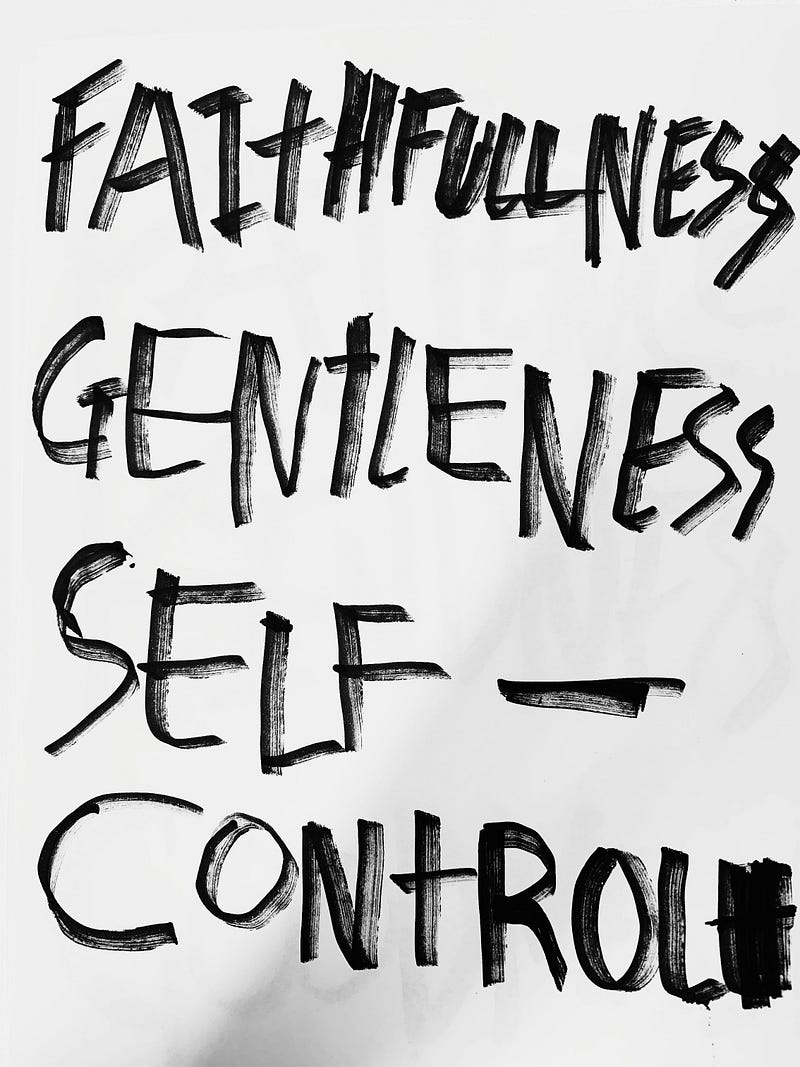Exploring Destiny: How Much Control Do We Truly Have?
Written on
Chapter 1: The Dichotomy of Destiny and Control
Have you ever contemplated the nature of destiny and the extent of your control over it? If so, you are certainly not alone. Across the globe, countless individuals grapple with the dichotomy between a strong belief in destiny and the conviction of having full control over their lives. This topic invites an exploration filled with questions, beliefs, and insights that have perplexed humanity for centuries.
“Our destiny exercises its influence over us even when, as yet, we have not learned its nature: it is our future that lays down the law of our today.”
- Friedrich Nietzsche

Photo by Caleb Gregory on Unsplash
In this discussion, we will navigate the fascinating terrain of destiny and individual autonomy. While we do not guarantee a conclusive resolution — perhaps one does not exist — we aim to illuminate these conflicting beliefs, the theories that support them, and their implications for our lives. Join us on this intellectual expedition to reflect, question, and possibly reshape your understanding of destiny and personal control.
Section 1.1: The Concept of Destiny
The idea of destiny is rooted in the belief that a greater plan governs our lives. This perspective suggests that events unfold as predetermined, positioning us as participants in a grand narrative. This belief has been integral to numerous cultures, philosophies, and religions since ancient times, from the Greeks’ notion of ‘Moira’ to Eastern concepts of karma and rebirth.
Section 1.2: The Case for Personal Autonomy
Conversely, some individuals champion the idea of personal freedom, asserting that we are the architects of our own lives, crafting our experiences with each choice made. This viewpoint emphasizes accountability and the ability to influence our fate through our actions, instilling a sense of empowerment and purpose.
Chapter 2: The Intersection of Destiny and Autonomy
However, the discussion is not strictly a matter of destiny versus free will. Numerous theories exist that blend these concepts into a cohesive understanding. One such theory is ‘soft determinism’ or ‘compatibilism’, which posits that while certain aspects of our lives may be preordained, we still possess the power to shape outcomes through our choices. This perspective marries the comfort of destiny with the excitement and responsibility of autonomy.
Mastering Your Fate: Take Control of Your Life offers insights into how individuals can actively shape their destinies while acknowledging the existence of predetermined elements.
Section 2.1: Narratives of Control and Destiny
Personal stories often reveal a blend of fate and autonomy. Life can present unavoidable situations that feel fated, while at other times, we navigate challenges through sheer will and determination.

Photo by Zac Durant on Unsplash
Regardless of one’s beliefs, the interplay between destiny and personal control significantly influences our internal dialogues. It shapes our reactions to life's obstacles, informs our moral compass, and impacts our self-perception and mental health. Thus, it is worthwhile to reflect on your position in this spectrum — do you firmly believe in fate, advocate for personal autonomy, or find yourself somewhere in between?
Section 2.2: The Psychological Implications
Research indicates that those who adhere to the belief in fate may adopt a more passive approach to life. They often rely on the idea that ‘whatever will be, will be,’ which can lead to a reluctance to make decisions that could alter their perceived fate. In contrast, individuals who believe in autonomy are typically more proactive and assertive, viewing their choices as powerful tools for shaping their destiny. This mindset can foster personal development, enhance problem-solving abilities, and build resilience.
Unraveling Fate: Understanding "A Twist of Fate" explores philosophical perspectives that examine the balance between fate and personal control.
Section 2.3: Philosophical Perspectives
Philosophical views on destiny and control vary extensively. Schools of thought such as Stoicism advocate for the idea that while we may not govern all aspects of life, we can control our responses and interpretations, which is essential for emotional well-being. Certain cultures perceive destiny as predetermined, prompting individuals to align their actions with this destined path, while others emphasize personal control and the notion of self-made success.
Conclusion: Finding Your Balance
Ultimately, individual perceptions of destiny and control differ widely, significantly shaping one’s approach to life. The concepts of fate and free will are intricately intertwined, profoundly affecting our decision-making and behaviors. Navigating life requires a delicate balance of accepting what we cannot change while actively pursuing what we can, recognizing that our destiny is not irrevocably set in stone. When viewed positively, both beliefs can promote resilience, support personal growth, and offer comfort during challenging times. Understanding how these perspectives influence our lives is crucial for achieving emotional equilibrium and fostering success.

Photo by Marek Piwnicki on Unsplash